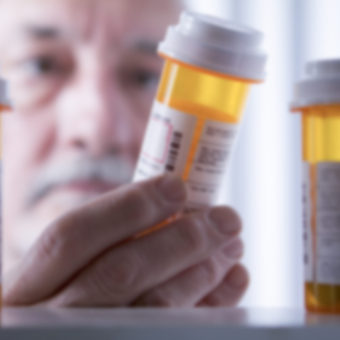

When it comes to the proper disposal of unwanted, unused, and expired household medicines, the laws can vary from state to state and jurisdiction to jurisdiction. You may have heard information about your state or local government’s program and questioned whether or not it differed from programs overseen by the federal government. In this post, we’ll discuss how programs can vary, and where you can go to find a disposal location or take back event, regardless of where you are in the U.S.
The federal Controlled Substances Act (CSA) received a 2014 amendment that allows the U.S. Drug Enforcement Administration (DEA) to register authorized collectors of controlled substances, allowing for collection of pharmaceutical controlled and non-controlled substances, but not illicit drugs (US DEA-Disposal regulations 2014).
This means that authorized collectors (including hospitals/clinics with an on-site pharmacy, retail pharmacies, and law enforcement agencies) may collect pharmaceutical controlled substances and non-controlled substances by voluntarily administering mail-back programs and maintaining kiosk sites.
If you’re unsure of whether your prescribed medicine is a controlled substance, an alphabetized list can be found on the DEA website. Before visiting a kiosk site, be sure to call and confirm exactly what they can and cannot accept.
States and municipalities adhere to the federal regulations referenced above for controlled substances. In addition to these disposal laws, many have their own unique programs for secure collection of unwanted, unused, and expired household medicines.
States and municipalities conducting secure medicine disposal all have variations to their programs, but a common and important goal is to educate their residents about best practices for disposing of unwanted, unused, and expired household medicines. Whether they offer in-person drop-offs, mail-in programs, or permanent secure collection receptacles, these jurisdictions provide ways for consumers to properly dispose of their unwanted, unused, or expired medicines.
While differing regulations can be confusing, it’s important to remember that all fifty states have secure kiosk sites for proper drug disposal. Our Kiosk Site Locator can help you find one in your area. Just type in your zip code to see the ones nearest you, along with important information like their phone number, hours of operation, and hours of collection, as well as what medicines they will accept. We verify this information regularly, but it’s always smart to call the location and confirm that none of this information has recently changed.
Additionally, all fifty states participated in the October 2019 DEA National Take Back Day. The Next DEA National Take Back Day will take place on April 25, 2020. To find a participating event in your area, visit the DEA website. (Related: What Are DEA Prescription Drug Take Back Days?).
To find out more about the federal guidelines for proper household medicine disposal, visit the FDA website.

It’s Easy as 1,2,3 ~ Unsure of what to do with your unwanted, unused, and expired household medicine? Safe disposal…
Read More
19th Annual Drug Take Back Day Announced ~ On April 25, 2020, the U.S. Drug Enforcement Administration (DEA) will host…
Read More
october 25, 2025, 10AM-2PM ~ The DEA’s National Prescription Drug Take-Back Day is a biannual event hosted nationwide to provide…
Read More
Secure storage away from home ~ Are you planning to travel this holiday season? If so, please follow the CDC Guidelines…
Read More